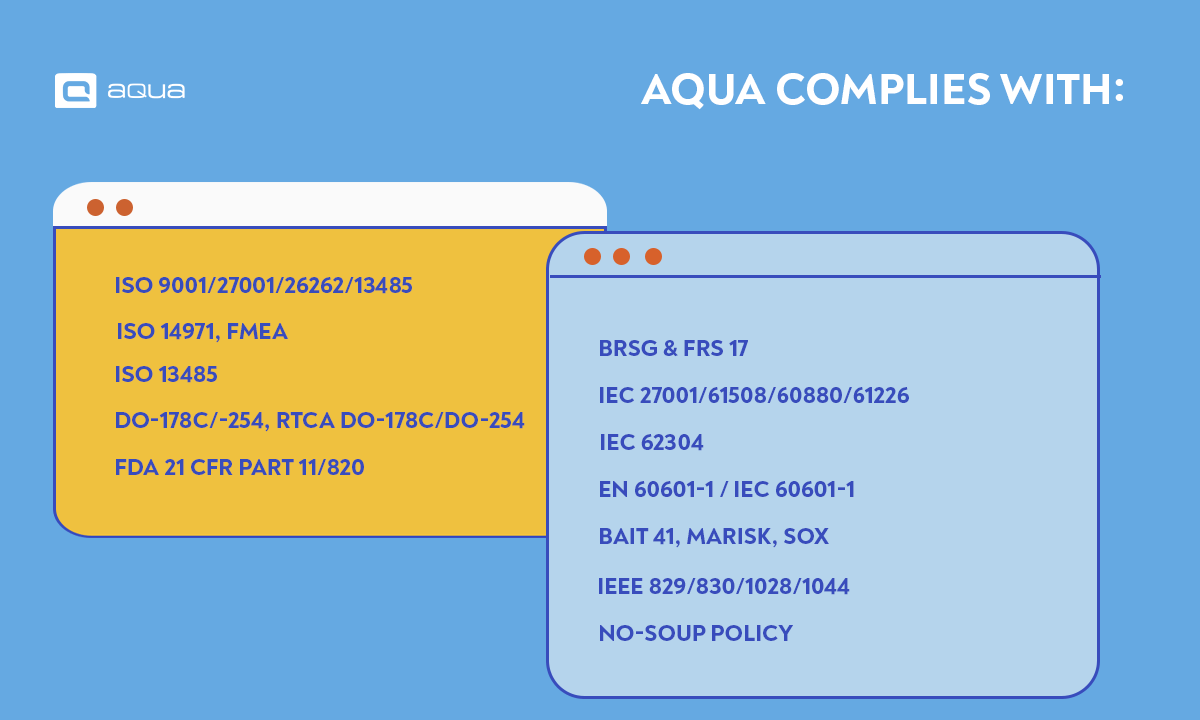Why do you need a test management tool for regulated industries?
In regulated industries, you need a test management tool due to strict compliance requirements and the critical nature of precision in product/service delivery. These tools are essential for ensuring adherence to regulations, mitigating risks, and maintaining your desired quality and safety.
When considering a test management solution for regulated industries, evaluating different software options is vital, as these industries have unique compliance needs and precision requirements. Below are the criteria you should look for when making the comparison of software for regulated industries:
- Compliance Alignment: Ensure the software aligns with industry-specific regulations, such as HIPAA for healthcare or SOX for finance. Look for certifications or features explicitly designed to meet these standards.
- Traceability and Documentation: Seek tools with robust traceability features, enabling clear documentation linking requirements to test cases. This documentation is vital for proving compliance during audits.
- Risk Mitigation and Accuracy: Prioritise solutions that emphasise risk management through meticulous testing, often aided by automation. This way, you reduce human error and ensure precise test executions.
- Collaboration and Communication: Choose platforms that facilitate seamless collaboration among teams. They offer you centralised communication hubs to streamline workflows and resolve issues efficiently.
- Audit Trails and Reporting: Robust audit trails and reporting functionalities provide transparent documentation vital for regulatory reporting and inspections.
- Version Control and Change Management: Opt for tools offering version control capabilities to manage different software versions effectively. This ensures that tests are conducted on the correct versions, mitigating risks associated with updates or changes.
- Data Security Measures: Security is also paramount. Ensure the tool complies with data protection regulations, offering necessary encryption and access controls to safeguard sensitive information.
By considering these aspects during your comparison, you’ll find a test management solution tailored to your industry’s specific needs and regulations. This careful selection ensures that the chosen software meets compliance standards and enhances efficiency and accuracy in testing procedures.
aqua TMS

Overview
aqua is an AI-powered test management solution with additional ALM functionality. Although primarily designed with testers in mind, it can be used for all stages of software development. The solution covers all of requirements management, defect management, and project management. aqua has been in the business since 2013 with the parent IT consulting company andagon created over a decade earlier. aqua has a vast track record among QA tools for governmental sector with 7+ German government agencies among the clients.
Regulatory compliance
aqua has both Cloud and On-Premise versions and provides extensive logging functionality. It is the basic expectation from test management tools for regulated industries, such as government and banking. aqua also makes it a point to highlight all the certifications that they (help) adhere to:

Extra functionality
AI
aqua is the market leader when it comes to AI testing. You can use it to cover new requirements in a few cilcks, update existing tests to meet requirement changes, and even converse with an AI chat bot for quick validation. aqua leverages the algorithm behind ChatGPT, except it is also adjusts to your project and does not allow OpenAI to use your data.
Dashboards
aqua offers real-time bar graphs and bar graphs that can illustrate any data, including custom fields. KPI alerts are also available, informing you when certain metrics (e.g. defect rate) exceed a threshold.
Reports
aqua’s reporting wizard comes with 7 templates but also lets you create fully customisable reports. You can pull any data from aqua as well as add any external text or imagery. The reports can be easily exported outside of aqua.
Automation & integrations
aqua goes the sustainable route of providing third-party automation tools rather than (re)inventing something themselves. You can connect about a dozen TOP tools for automated testing out-of-the-box. There’s also a Jira integration to work with devs if they stay there and REST API support to hook any other tool. The oauth2 token authorisation for REST API integrations makes them suitable even when it comes to test management for government.
Migration & sustainability
Moving to aqua takes one day on average, and the company provides a free tool to do that. The client portfolio includes companies with millions of items, and aqua doesn’t crumble under the load.
aqua is also the best solution to achieve massive gains from AI-powered testing. It can generate tests from scratch, cover and update test coverage for a requirement in one click, and even prioritise tests. You can optionally use the data from your workspace to provide extra context for the AI copilot. aqua uses a QA-tailored algorithm behind ChatGPT.
Save 12.8 hours/week per employee with AI-boosted testing
Polarion

Overview
Polarion is, too, regarded by some as the best testing tool for regulated industries. It was launched in 2003 and acquired by Siemens in 2015. Polarion is an application lifecycle management solution as well.
Regulatory compliance
Polarion has both Cloud and On-Premise versions. They have solid logging functionality and even offer running self-audits on the log. Polarion specifically advertise fitting needs of the medical industry as well as helping pass BaFin audits and complying with MaRisk requirements.
Extra functionality
Dashboards
Polarion provides meaningful dashboard functionality with various charts and graphs. They also have a neat option to define the frequency of data updates to conserve server resources. Polarion dashboards lack KPI alerts.
Reports
Polarion’s reporting is limited to Time & Progress, Baseline, Work, and CMMI reports. There is, however, some level of flexibility if you pull the data you need via a query. Custom reports are reserved to tech-savvy people that can navigate Javadoc documentation.
Automation & integrations
Polarion relies on third-party tools for automation, but provides fewer integrations out of the box. The less-than-ideal documentation for them is one of the few complaints about Polarion. Polarion supports REST API as well.
Migration & sustainability
Polarion is relatively fast on migration with new clients confirming that it is a matter of hours or days, not weeks. The tool’s architecture, however, can be a deal breaker for huge projects: the Subversion-based backend makes the tool slower as the number of items grows into hundreds of thousands and millions.
QMetry

Overview
QMetry is a purely test management solution launched in 2012. It is the only non-ALM solution on our list. QMetry specifically mentions BFSI as one of their key verticals with Allianz among the client portfolio.
Regulatory compliance
Just like Polarion, they tick all the essential boxes, even if not as broadly as aqua does. QMetry also has the eSignature functionality that is mandatory for the medical industry but can also be appreciated in other domains.
Extra functionality
Dashboards
QMetry dashboards are somewhat simple, but pie charts and bar graphs get the job done. Just like with aqua, you can share a dashboard with others or keep it to yourself.
Reports
QMetry offers 14 types of reports. These will usually be enough for you, but you might want to check the full list if you’re used to something more custom.
Automation & integrations
QMetry iterates upon Selenium and Appium to provide a test automation solution of their own. It can also be integrated out-of-the-box with over a dozen third-party tools, such as Jira and Jenkins. QMetry supports REST API for anything else.
Migration & sustainability
QMetry’s migration has a reasonable timeframe, with the company mentioning a big client moving 56 projects in 25 days. There are no widespread reports of performance issues plaguing projects with a lot of items.
| Feature | aqua cloud | Polarion | QMetry |
|---|---|---|---|
| Regulatory Compliance | Extensive logging, certifications | Solid logging, regulatory focus | Compliance features, eSignature |
| Extra Functionality | AI testing, dashboards, reports | Dashboards, basic reports | Dashboards, various reports |
| Automation & Integrations | Third-party tools, REST API | Third-party tools, REST API | Test automation, third-party tools, REST API |
| Migration & Sustainability | Efficient migration, scalability | Fast migration, scalability issues | Reasonable migration, no performance issues |
Conclusion
All three tools are top picks as test management software for regulated industries. They all provide a solid baseline with some nice-to-haves. Make sure to read up on some caveats (e.g. Polarion not handling big projects well), check out reviews, drill the salespeople if you have any concerns, and level up your QA.
Try the best AI-powered TMS






